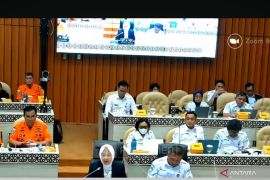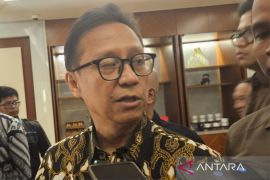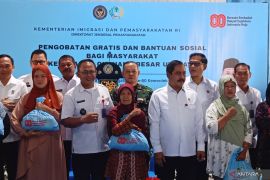Bank Indonesia Governor Agus DW Martowardojo said revealed that the overall objective of the five new policies was to bring in more foreign exchange.Jakarta (ANTARA News) - Bank Indonesia (BI) has introduced five new policies to maintain the country`s macroeconomic stability and ensure sustainable economic growth.
"These new policies will help improve the effectiveness of the policy package we approved at the meeting of the board of governors on August 15 this year, which was aimed at keeping inflation in check, managing the balance of payment more sustainably, and improving the stability of financial system," Bank Indonesia Governor Agus DW Martowardojo said at a press conference here on Friday.
He revealed that the overall objective of the five new policies was to bring in more foreign exchange.
Martowardojo noted that the first policy involved extending the period of term deposits in foreign currency from seven, 14 and 30 days to 1-12 months.
"This policy was designed to widen the range of tenures in order to encourage commercial banks to place their foreign exchange in Bank Indonesia," he explained.
The second policy involves relaxing the conditions for purchase of foreign currencies by exporters, Martowardojo said, adding that the policy was aimed at allowing exporters to buy foreign currencies by providing underlying documents on the sale of foreign currencies.
"The third policy involves more flexible provisions, through which banks` foreing exchange transactions will be treated as pass-on transactions, with the objective of boosting derivative transactions," he explained.
According to Martowardojo, the fourth policy involves relaxing provisions on foreign debts by increasing the types of exemptions for banks` short-term foreign debts in the form of rupiah giro (VOSTRO) owned by non-resident customers. This, he pointed out, is to accommodate divestment funds resulting from direct participation, purchase of Indonesian shares and/or corporate bonds, as well as state debt securities (SBN).
"This policy is intended to accommodate non-resident customers` requests for foreign currencies without the banks having to face the risks of giving out foreign loans," Martowardojo said.
The fifth policy, he continued, will lead to issuance of Bank Indonesia deposit certificates (SDBI) to help the banking industry manage rupiah liquidity through tradable instruments.
"Hopefully, these policies work well with the package of economic policies issued by the government today (August 23)," Martowardojo added.(*)
Editor: Heru Purwanto
Copyright © ANTARA 2013












